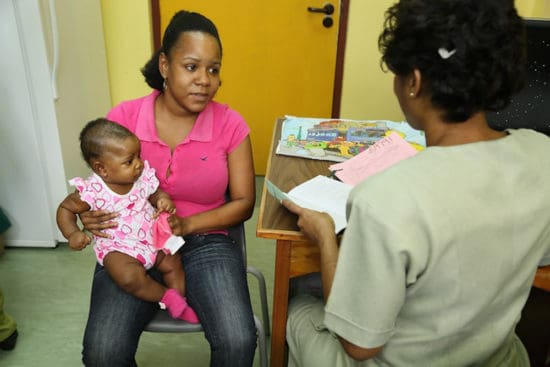ACA Health Insurance Marketplace opens November 1, 2025, to January 15, 2026. Learn more.
What is health insurance?
Health insurance, or medical insurance, is a contract between you and a health insurer. It covers some or all of your healthcare costs in exchange for a monthly payment. The monthly cost of the insurance you pay is called the premium.
Having health insurance can be referred to as being covered or being insured. Health insurance can protect you from having to pay large medical bills. It is often better to pay the premium every month than suddenly get a huge bill from a hospital.
Health insurance plans typically pay for the following services:
- Medical visits and screenings
- Labs, imaging, and immunizations
- Mental health services
- Urgent care and emergency services
- Prescription drugs
Health insurance companies offer multiple plans for different premiums. Each plan has specific coverage and conditions for a set monthly premium. Some health insurance providers also pay for vision and dental care.
Often, the insurance company does not pay for all of the expenses. You might have to pay a deductible when you get care. A deductible is an amount you have to pay before your insurance starts paying for your healthcare.
You may also have to make co-payments for certain medical services and prescriptions. Each plan also specifies which doctors and healthcare facilities you can visit.
Your rights
- You have the right to get healthcare no matter your immigration status or ability to pay, even if you do not have health insurance.
- If you apply for health insurance, your personal information, including immigration status, is supposed to be kept private.
- You do not need a Social Security number to apply for health insurance.
- Learn more about your healthcare rights with the NILC.
How do I get health insurance?
In the United States, you can get health insurance through:
- government (public health) insurance programs
- your job, with help from your employer
- private health insurance that you buy yourself
If you do not have health insurance, there are health centers and clinics that offer free or low-cost medical care.
Government health insurance programs
Government health insurance programs offer help to people who can’t afford health insurance or who meet certain requirements. It is offered by the federal or state government. It can also be called a public health program.
Medicaid and Children’s Health Insurance Program (CHIP)
Full-scope Medicaid provides free or low-cost health insurance to older adults, people with disabilities, children, pregnant women, and families with low incomes.
“Emergency” Medicaid pays for emergency services, including being in the hospital. Emergency Medicaid is available for immigrants who are not considered qualified non-citizens but meet all income and state residency rules. Undocumented immigrants and other immigrants not eligible for full-scope Medicaid can apply.
Children’s Health Insurance Program (CHIP) provides free or low-cost health coverage for children and pregnant women. This is for families that earn too much money to qualify for Medicaid.
Note: Medicaid and CHIP are likely to be called something different in your state.
Eligibility: Qualified non-citizens, lawfully residing children, and pregnant women in many states. Wait periods can vary based on when you entered. Children who receive foster care do not have to wait.
Refugees, asylees, survivors of domestic violence and trafficking, and parolees are currently eligible for Medicaid and CHIP, but will not be eligible starting October 2026. Pregnant women and children will still qualify in some states.
- How to apply: Fill out an application with your state Medicaid or CHIP agency, or contact them for eligibility information and how to apply.
Medicare
Medicare provides free or low-cost health insurance for adults 65 or older and people with disabilities and serious illnesses.
Eligibility: Lawfully present immigrants are eligible for Medicare based on certain work history or residency requirements.
Refugees, asylees, survivors of domestic violence and trafficking, and parolees will not be newly eligible for Medicare. If you are currently enrolled, you will lose access starting January 4, 2027.
- How to apply: Fill out the online application for Medicare. You can sign up for Medicare when you enroll in Social Security benefits or retire. Call the Medicare line at 1-800-633-4227 for help in your language.
Special Supplemental Nutrition Program for Women, Infants, and Children (WIC)
WIC helps pregnant and breastfeeding women and children under 5 get food, nutrition counseling, and referrals to social services. You must meet certain income and health requirements to qualify.
Eligibility: People can get WIC regardless of their immigration status in every state except Idaho. In Idaho, only qualified non-citizens are eligible.
- How to apply: Contact your state or local WIC agency for details on how to apply.
Medicare, CHIP, and WIC do not count toward public charge. Medicaid only counts if it is for long-term care in a nursing home or similar facility. Learn more about the public charge rule.
Private health insurance
The majority of Americans have private health insurance coverage. Over half of the people living in the USA have private health insurance through their job. People who do not have employment-based insurance can buy health insurance directly from an insurance provider.
Workplace health insurance
Jobs that offer health insurance pay a large part of the costs of health insurance. The employee pays a part of the health insurance costs. Some offer different health plans. Employees can also choose to include their spouse and children in their health insurance plans at an extra cost.
In some circumstances, when you leave your job, you can extend your coverage through a government plan called COBRA. COBRA is available for teams with 20 or more employees and lasts only for a short period of time. You may have to pay the whole premium by yourself.
Health Insurance (ACA) Marketplace
The Health Insurance Marketplace is a government program that allows you to buy private health insurance. You may qualify for lower costs on monthly premiums and savings on out-of-pocket costs based on your income.
Eligibility: Lawfully present immigrants are eligible to apply.
- DACA recipients will no longer be eligible starting August 25, 2025, and coverage ends for enrolled recipients on October 1, 2025.
- Lawfully present immigrants who earn less than the federal poverty level cannot apply for the ACA starting December 31, 2025.
- Refugees, asylees, survivors of domestic violence and trafficking, parolees, and TPS holders are currently eligible for ACA health insurance, but will not be eligible starting December 31, 2026.
- How to apply: Fill out an application with the Health Insurance Marketplace.
Open Enrollment
Health Insurance Marketplace Open Enrollment runs from November 1 to January 15 every year. During this time, you can enroll in a new plan, renew your current plan, or make changes to your health insurance.
- Enroll or renew by December 15 for your coverage to start on January 1.
- If you enroll or renew after December 15, your coverage starts February 1.
- After January 15, you can only enroll or make changes if you qualify for a Special Enrollment Period due to life changes like losing coverage, moving, getting married, or having a baby.
- If you are currently enrolled and do not renew or cancel, you may be automatically re-enrolled using your existing information.
- Note: Medicaid and CHIP applications are open year-round.
Tax credit changes
Starting November 1, 2025, many people who are lawfully present in the U.S. will no longer qualify for tax credits that lower the cost of health plans on HealthCare.gov and state marketplaces.
This includes:
- Green Card holders in their first 5 years in the U.S.
- People with Temporary Protected Status (TPS)
- Asylum seekers and others with temporary or pending immigration status
Health insurance companies
You can also buy health insurance directly from health insurance companies in your state. You have the right to buy health insurance regardless of your immigration status.
College medical insurance plans
Students can buy healthcare insurance through their colleges. You may have to be enrolled in a certain number of credits to apply for health insurance through your school. Contact your health center to find out what your options are.
More from USAHello
Looking for specific information?
The information on this page comes from USA.gov, healthcare.gov, and other trusted sources. We aim to offer easy to understand information that is updated regularly. This information is not legal advice.





